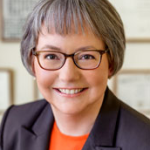Video Transcript: Why Your MD Won’t Recommend a Natural Treatment
Ty Bollinger: Dr. Isaacs, this is a loaded question but you feel free to answer it appropriately. Does modern medicine pay too much attention to drugs and not enough attention to natural types of treatments?
Dr. Linda Isaacs: Yes. That is the short answer. Yes, that is correct. And I think a lot of that is how is research funded. And much of research is funded by the pharmaceutical industry. They, for better or worse, are—their goal is to make money for their stockholders. Their goal is to develop drugs that can be patented, that can be sold to treat illness. They are funding the research and not unexpectedly then the medical world is looking for research to know how to treat patients and what is available is drugs.
One of the problems I think that doctors feel is that if they—even if they prescribe some sort of nutritional approach or nutritional modification, that the patient isn’t going to follow through on it. You think about it, what’s easier? To talk to a patient about the dietary influences on cholesterol, for example, or the benefit of exercise? They feel like the patient probably isn’t going to do it. It’s much easier to write a prescription for a pill.
Many times when a patient comes in complaining about some issue or problem the doctor feels like what is wanted is a prescription. In many cases they’re correct. So I think that if you want to get nutritional input or guidance from a physician you either have to ask for it very bluntly or go to a doctor who is oriented that way in the first place.
Many doctors’ own diets are not that impressive. So that is another consideration. It’s hard if you’re a doctor working 80-hour weeks, eating on the run, mostly eating junk. They’re not going to talk about nutrition too much because they know they’re not doing it themselves. And they would rather not think about it. So they just keep writing prescriptions.
Ty Bollinger: I appreciate your candor in that answer. One of the things that is interesting to me is that you are a medical doctor. I have heard from other medical doctors that I am good friends with, that going through medical school [they] did not really receive much training in nutrition. It was more of a drug-based program that you went through in college. Talk about your own medical school. Did you receive much nutritional training through medical school?
Dr. Linda Isaacs: We did not receive much nutritional training in medical school. And I think part of it is that much of the training that you get in medical school is really crisis intervention. It’s not really about dealing with people that are well and how to keep them well. It’s really about dealing with people that are in a crisis either because of trauma or because of some disease process that’s well on its way, quite advanced.
And so nutrition really is not discussed because pharmaceuticals is what helps you deal with somebody who has got pneumonia or somebody who is in heart failure and has fluid up to their eyeballs so to speak. Pharmaceuticals is what’s going to help turn that situation around fast. But what, as a patient, one wants is help in staying healthy as long as possible. But that’s not really what doctors are trained in.
Ty Bollinger: I’m glad you made the distinction lest anything think that I am being down on medical doctors. I think that the state of trauma medicine in the United States today is second to none. I have often used the analogy, if I’m shot with a shotgun blast to the chest I’m not going to go rub aloe vera juice on it or something natural. I’m going to go to the hospital and the emergency room doctors are going to have the best knowledge of anybody to save me. If I have a limb amputated they may be able to reattach it and still function. So I think that our state of medicine concerning trauma is just amazing today.
Dr. Linda Isaacs: Yes.
Ty Bollinger: So lest anybody think I am being overly critical, just asking the questions here.
Dr. Linda Isaacs: Right


















Leave a Reply